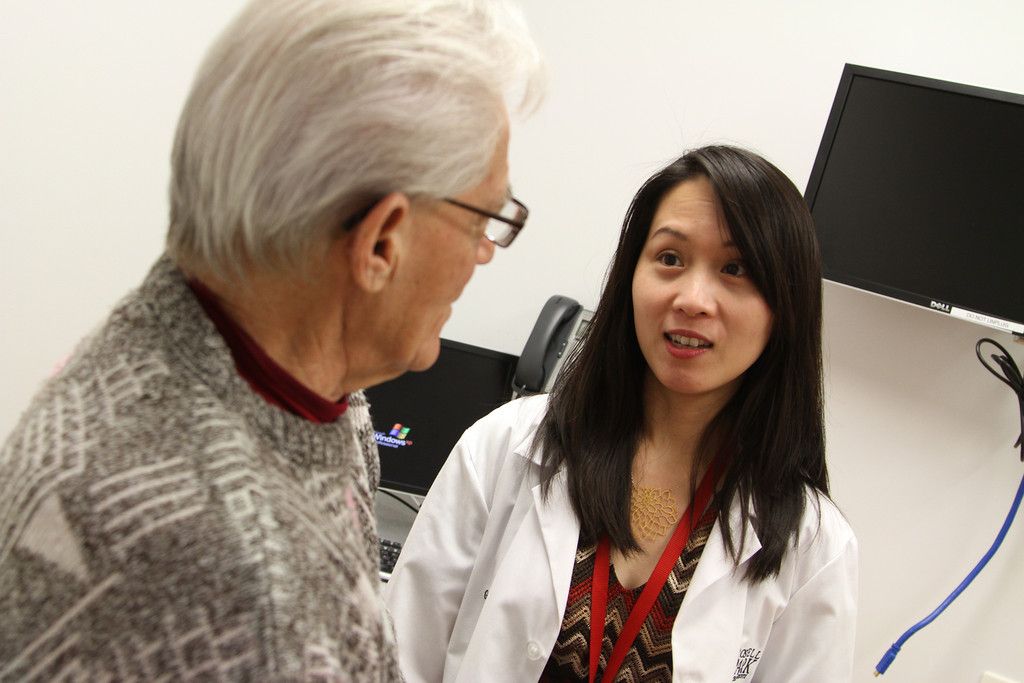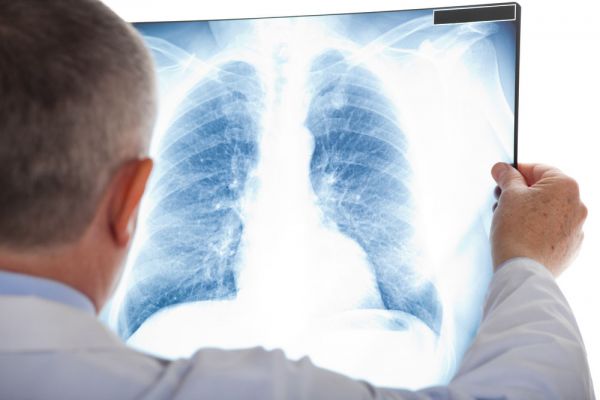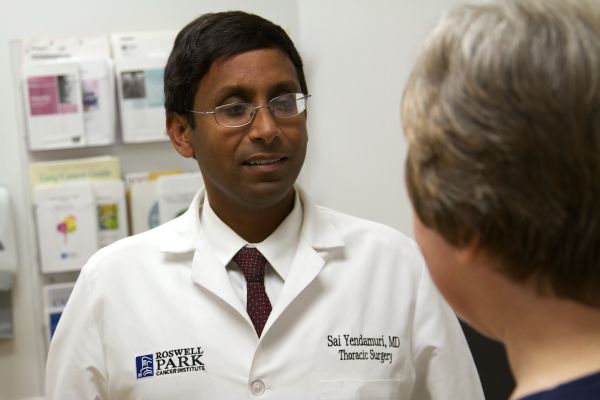Each November, we honor and remember those touched by lung cancer as part of Lung Cancer Awareness month.
It’s wonderful to have a whole month set aside to focus on this disease, but it’s also very important to maintain awareness and stay educated. Some misconceptions about lung cancer exist and it can sometimes be difficult to separate myth from fact. The following are three popular lung cancer myths:
1. Only smokers get lung cancer.
Smoking is lung cancer’s biggest risk factor and, according to the American Cancer Society, accounts for 87 percent of lung cancer deaths. If you smoke, quit. Quitting decreases your risk of being diagnosed with, and dying from, lung cancer.
Quitting or not smoking at all is the best way to avoid lung cancer, but even those methods aren't foolproof. At Roswell Park, my colleagues and I often see lung cancer patients who have never touched a cigarette, nor are they exposed to second-hand smoke. These patients are understandably confused as to how they ended up in our care.
Unfortunately, we don’t always have the answer. On the surface, these patients appear to be low risk, however, depending on the individual case, environmental factors may play a role, as well as exposure to particulate matter and radon. Genetics and family history may also be a factor.
2. A lung cancer diagnosis is an automatic death sentence.
Lung cancer statistics in the U.S. are daunting. It is the number one cancer death in this country and more men and women die from lung cancer than colon, prostate and breast cancer combined. Despite the unsettling numbers, a lung cancer diagnosis does not have to be an automatic death sentence.
Lung cancer is much more treatable if caught at an early stage. If you identify with any of the known risk factors for this disease, screening for lung cancer is a consideration. An estimated 234,000 new cases of lung cancer will be diagnosed this year in the U.S., and a majority of them diagnosed at a late stage when the cancer may not be curable. Do not wait for symptoms to appear — they often develop when the disease has reached late-stage. If you believe you’re at high risk, I invite you to complete our High Risk Assessment Form or call 1-800-ROSWELL for more information.
Please also keep in mind that lung cancer is not limited to just one disease. The most common classification divides lung cancer into either non-small cell or small cell. We currently understand that lung cancer is comprised of different types depending on the individual patient's tumor genetic profile, enabling us to better personalize his or her treatment. Every patient and every case is different, making different types of treatment necessary. At Roswell Park, we have found that “one size fits all” treatment doesn’t necessarily work for all types of lung cancer, leading to our encouraging progress in the fields of targeted therapy and personalized medicine.
3. I already have lung cancer so I might as well continue smoking.
This line of thinking is incorrect. It is never too late to quit smoking. Doing so improves survival rates for patients who are already diagnosed and may lower chances of a relapse. Additionally, quitting is beneficial when undergoing cancer treatment, improving your body’s ability to respond to chemotherapy, radiation or surgery.
By quitting smoking, you also stand to lower your risk for other potential unrelated health ailments including stroke or heart attack. I can understand why it might be easy for a smoker to continue smoking, especially after being diagnosed, but the sooner you quit, the better off you’ll be.
Roswell Park is happy to assist anyone trying to kick the habit, offering a smoking cessation program, and access to the New York State Smokers’ Quitline.




